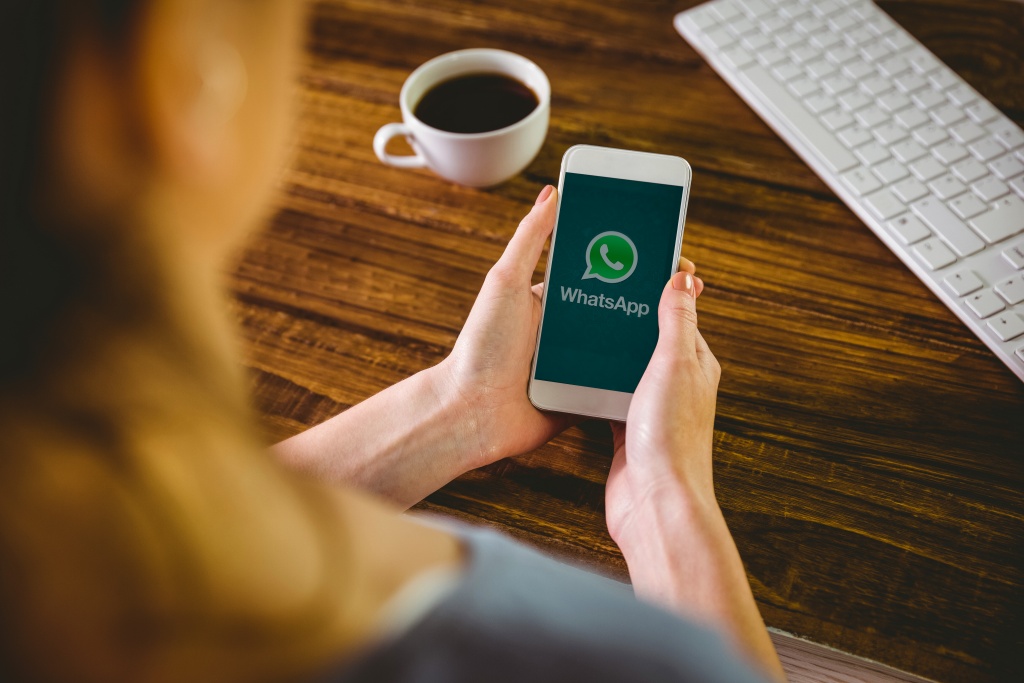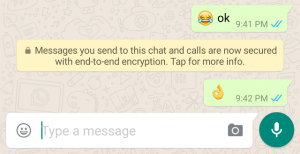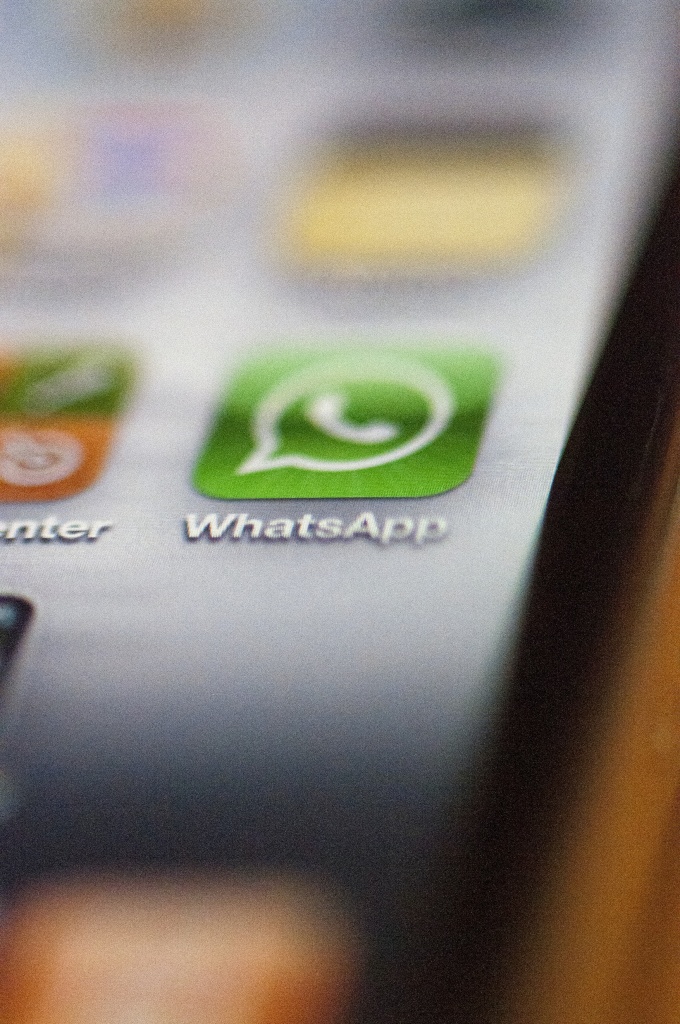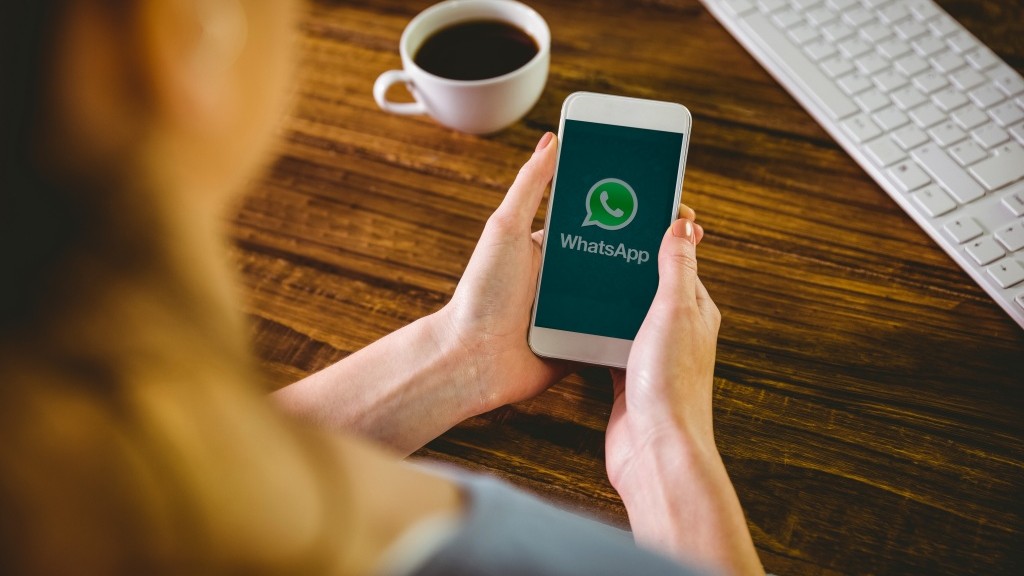 Avid WhatsApp-ers were the first ones to notice the new security changes the company put into action last week. Now, your conversations on WhatsApp are safer through end-to-end encryption. With this new security system, your messages safely travel from mobile to mobile, from your hands to the person on the other side of the message.
Avid WhatsApp-ers were the first ones to notice the new security changes the company put into action last week. Now, your conversations on WhatsApp are safer through end-to-end encryption. With this new security system, your messages safely travel from mobile to mobile, from your hands to the person on the other side of the message.
The notification would appear in a message like this:

Say you are at your favorite coffee shop, sipping on a hot drink and you decide to connect to the Wi-Fi, but instead connect to a false Wi-Fi network (hackers set-up fake networks to gain access your information like e-mail, passwords and other information.)
In theory, cyber-criminals could steal your messages but it’d be pretty pointless without a decryption key. Breaking public keys, which are different for each message, would be both time-consuming and extremely complicated. Instead of juicy information, the third-party would see senseless characters in the place of the message.
The security measure reassures us that the content coming into our mobiles (i.e. text, photos, videos, files, and voice recordings) are completely private.
But end-to-end encryption is not the solution to everything.
However, it is a giant step for the safety and quality of our chats.
Experts say there several factors to consider:
- To make the system work, all participants must have updated their WhatsApp. If one of the members of a group still using an older version, the chats remain “unsafe”.
- This security measure ensures that messages travel from one mobile to another securely, but they remain vulnerable to attack if they are stored on the devices. Not all “smartphones” are the smartest: some don’t encrypt their content but most modern ones do by default or at least allow it as an option (ex. the latest iPhone or Lollipop by Android).
- Sometimes the juiciest of information is not shown in our messages, but in something called metadata, which is “data that provides information for other data” like who called who, when they called, for how long, etc. In the end, if your sensitive information ends up in the hands of a country’s secret service or a judge, WhatsApp’s parent company, Facebook, would be responsible for it. Do you trust them?
You should update your WhatsApp and enjoy the insurance of end-to-end encryption, but don’t solely depend on it for your full-protection and privacy. Although it’s a definite upgrade in mobile security, it’s still an insufficient form of protection.
The post Uncovering the WhatsApp encryption appeared first on Panda Security Mediacenter.
